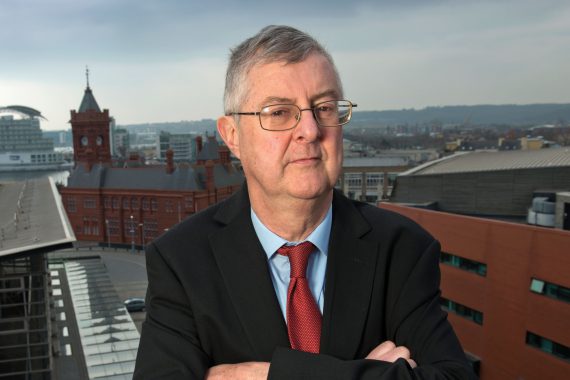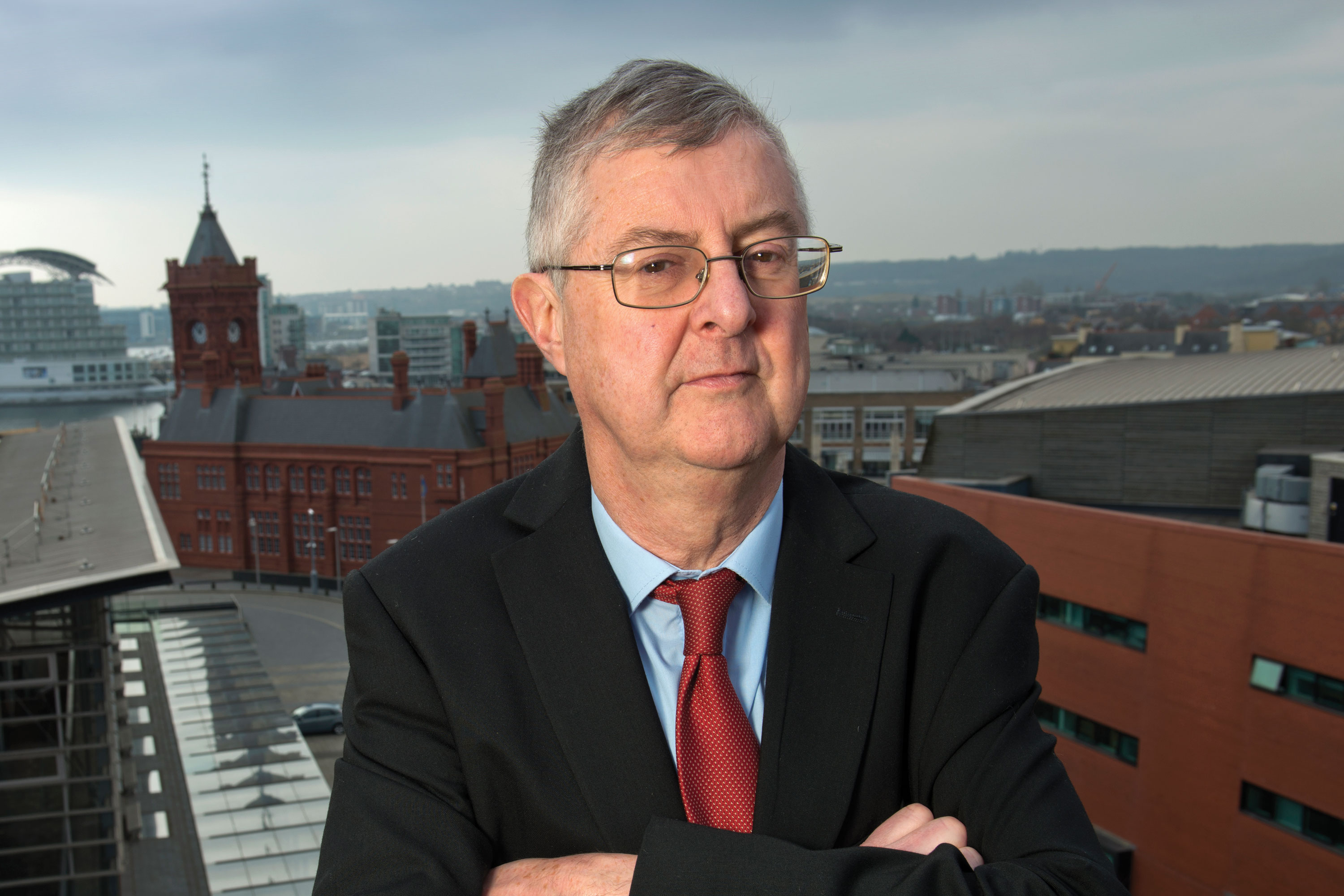‘GPs don’t want to work five days a week’


When it comes to general practice, Welsh health minister Professor could probably teach his English counterpart a thing or two.
While health secretary Jeremy Hunt has driven junior doctors to strike and GPs to consider mass resignation, Professor Drakeford is advocating ‘prudent healthcare’ and talking about cutting the working week for older GPs. In fact, Welsh LMC leaders recently voted down a call for the GPC to canvass GPs about mass resignation, in a demonstration of the better relations on the other side of Offa’s Dyke.
That does not mean the softly spoken west-Walian has no challenges. Wales is not immune from the GP crisis – indeed, North Wales has some of the most acute workforce gaps in the UK. Welsh health boards were accused this month by Welsh GP leaders of ‘double standards’ after it emerged NHS-run practices were paid an extra £29 per patient in some areas compared with GP-run surgeries. A BMA analysis last year revealed that 10 practices in Wales were under health board control after becoming unsustainable, with a further eight ‘at risk’.
Professor Drakeford speaks to Pulse as the pressures on general practice in Wales continue to worsen, so what is his approach to addressing them?
Pulse has been calling for emergency funds to be made available to support practices at risk of closing through its Stop Practice Closures campaign. The Welsh Government offered support to at-risk practices last year. How is that going?
It took a while to agree mechanisms with the GPC, but we now have two or three examples of that process being triggered and completed.
Powys, which is the most rural part of Wales, is where this has been tested to the greatest extent. Sometimes it’s just additional advice and support; sometimes it means getting extra hands on deck, and sometimes it means money.
What else is needed?
We must do everything we can to attract people to come to work as GPs in Wales and then to retain their services.
People do not want to go on working five days a week as they have in the past. And we have to find ways in which people who would like to go on providing [some service] are enabled to do that.
We have 64 general practice clusters in Wales and they are a mechanism through which practices can provide a system of mutual aid and work across their boundaries to support one another. Clusters are new – they are at different stages of maturity – but I think it has been a very exciting first 12 months for them.
What have you learned from clusters so far?
I am very glad, looking back, that we took the decision to put money directly into the hands of clusters at the very beginning to give them an opportunity to respond to issues in their areas. It has been very interesting to see how they have used that money.
Probably the single greatest use has been in employing a new cadre of clinical pharmacists. We’ve got 50 now, there were none – more or less – this time last year. Healthcare support workers are the second biggest group we’ve seen. We’ve had clusters choosing to employ social workers, advanced practice paramedics and advanced practice musculoskeletal physiotherapists. I have been struck by the number of clusters that have used some of their money to bolster third-sector services. There is also a move towards social prescribing.
I think it is genuinely exciting, the range and quality of ideas we’re seeing. They are linked by a key principle: that our GPs are our most highly skilled and scarce resource. What we have to do is find new ways their time can be freed to do the things that only GPs can do.
So how do clusters differ from CCGs?
We still have a planned health service in Wales. We are not about competitive commissioning. We sit with our clinical colleagues and try to plan the way we want to see services in the future and then we try to put the money where we think those plans will be accelerated.
We have seen health boards taking over contracts, with partners retiring due to workforce and workload issues. What’s the plan for those practices?
Our ambition is to restore practices to be able to run under their own steam. We have practices that come into direct management by health boards and we have practices that go back because recruitment has succeeded and new arrangements have been put in place. The aim is always to find a way of creating a service that can run itself. It doesn’t necessarily mean going back to what was there before – sometimes you have to create something new.
So is this a rejig of the independent contractor model?
Some members might be employed directly by the health board. Or the health board might agree to take over back-office functions, so that the clinical side is run locally but some of the administrative stuff, which can make the job of running a practice more difficult, can be incorporated into the bigger abilities the health board has.
Sometimes it will mean new models on the ground; whether it’s federated practices or practices getting together to form a not-for-profit social enterprise. We have examples of that in Wales.
The contractual model will continue to be dominant for quite some time. We are not hostile to that in any way, but we recognise that new GPs or primary care workers may be interested in a wider range of models. We need to be able to support people who want to take experimental steps. It’s a pragmatic approach; we have to work out with people on the ground the most acceptable and sustainable solution.
What about retaining experienced GPs who might be thinking of retiring?
People in that part of their career are very important to us and we want them to contribute for as long as they feel able. It’s about having discussions earlier, so we get a sense of what’s important to them and where they might see that contribution.
That could be continuing to practise a few days a week in an area like diabetes or dementia. If you are a GPSI you might be willing to go on providing a specialist service within a cluster, or you might be interested in training the next generation of GPs. You might rather come back as a salaried GP rather than have the complications of a partnership.
Overtreatment is a big issue for GPs. You advocate a ‘prudent healthcare’ model in Wales – what’s that?
Prudent healthcare says that doing more doesn’t mean you are doing better. We have a paradox in Wales of over- and undertreatment in the same system.
So how will GPs be supported in minimising interventions? It’s a good ethos, but GPs have so many guidelines they’re supposed to follow, and indemnity is a growing burden.
We are keen this year to begin the business of creating a new generation of prudent patients. There is work to be done in making sure patients understand all of this and are equipped with the right sort of questions to ask.
GPs say to me we have to find the time for that first consultation, and we take that seriously. If we want this more co-productive relationship, we need the first consultation to allow that discussion about what matters. Evidence suggests that if you realign time in that way you get it back later.
We do recognise that everybody is flat out. Trying to re-engineer it in this way will be a challenge. But it is one we are keen to work on together.
So could we see the end of the 10-minute appointment fixation?
I feel from GPs that if we want to move towards the prudent healthcare approach, we have to do some things to enable it in the future.
CV
Age
61
Education
Graduated in Latin and English from The University of Kent
Career
- 1985-1993 Labour councillor for Pontcanna, South Glamorgan County Council
- 2000-2010 Cabinet health and social policy advisor, Welsh Assembly
- 2000-2009 Head of First Minister’s political office
- 2003-present Professor of social policy and applied social sciences, Cardiff University
- 2011-present Assembly member for Cardiff West
- March 2013-present Minister for Health and Social Services
Other interests
Watching Glamorgan County Cricket Club, body boarding and tending his allotment
Pulse July survey
Take our July 2025 survey to potentially win £1.000 worth of tokens












